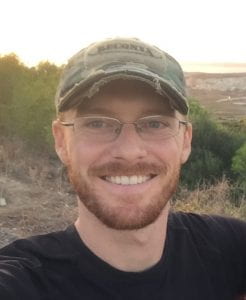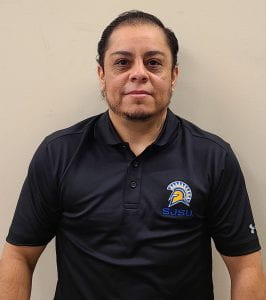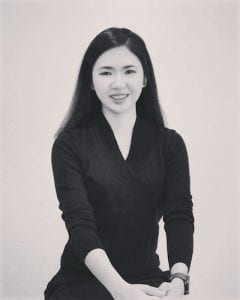Three SJSU graduate students were named Sally Casanova Pre-Doctoral Scholars for the 2020-2021 year. Congratulations to these outstanding scholarship recipients!
Nicole Coates | Graduate Student, Interdisciplinary Studies
“I started graduate school at SJSU in Fall 2019 and am in the Interdisciplinary Studies program, where I created my own coursework which is centered around psychology, philosophy and statistics. Being chosen as a 2020-2021 Sally Casanova scholar is incredibly exciting because I feel more confident in applying to PhD programs this Fall. Although being a first-generation woman and minority student in higher education has brought about challenges and doubt, I am thankful that SJSU has fostered my research interests and allowed me to create community. My goal in obtaining my PhD is to contribute to the field of cognitive science through a diverse lens. I’m not only passionate about the field itself, I am passionate about diversifying it and empowering others like me to get their ideas heard.”
Mike McFarlin | Graduate Student, Ecology and Evolution
“I began my graduate studies in Ecology and Evolution at San Jose State University in the spring of 2018. A highlight for me while I have been a student at San Jose has been the wide range of experiences that have been available to me. I have been able to collaborate with international researchers during my research, take courses at SJSU and other institutions, and work with undergraduate students in laboratory courses. It is an honor to have been chosen as a 2020-2021 Sally Casanova scholar and I look forward to the opportunities and connections it will afford me as I pursue doctoral studies. In my future research, I am interested in investigating the connections between larger organisms within ecosystems, their microbiomes, and the environmental microbiota that are so critical to maintaining the healthy ecosystem functioning that we rely on. Increasing human development is endangering many species though it is still unclear what impacts the loss of larger species could have on the structure of microbial communities. During a PhD, I would also like to continue to teach undergraduate courses and mentor students in research and analysis. Teaching at SJSU has been fulfilling and energizing. It has helped me within my own research and I would be honored to continue working with younger scientists during my studies.”
Jai Mica Vaca | Graduate Student, Justice Studies
“I began my graduate studies/program Fall 2019 and plan on graduating Spring 2021. I am currently researching/exploring how legal status affects SJSU Deferred Action for Childhood Arrivals (DACA) students’ mental health and academic success. More specifically, the impacts of legal limbo, which results in toxic uncertainty. The program so far has been great, the professors have been amazing. The Justice Studies department faculty have given me the tools and training needed to start my research project. My ultimate goal is to obtain my Phd and become a professor. My research interests are immigration, criminalization of undocumented people, social justice, mental health and DACA. It is truly an honor to be chosen as a 2020-2021 Sally Casanova scholar. As a first generation college student this program will provide the assistance needed to achieve my career goal.”




